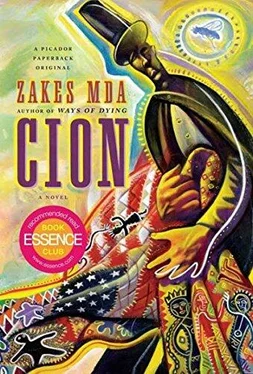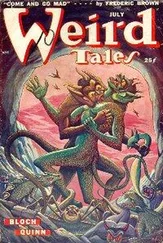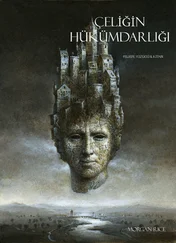At first I found Mahlon Quigley’s silence unnerving. I am getting used to it now although I still find it uncomfortable that no one attempts to draw him into any conversation. I wonder what thoughts are brewing in his head. What memories. Ruth told me the other day that there are things her Mr. Quigley remembers and there are things he has chosen to forget. One of the things he has tried to forget but that stubbornly continues to haunt his memory is the fact that his mother was unjustly confined to the mental hospital at The Ridges and no one in the family saw her again. She is one of the numbers on the headstones in the cemetery. Could that smile be hiding a quietly seething anger? Of course this is mere speculation on my part. Perhaps I am desperately searching for a motive for his aloofness. Those unsmiling but soft and compassionate eyes do not seem to be capable of any anger.
“It must be fun spending some time at the Center with your mates, Mr. Quigley, talking about the good old days,” I say, trying my best to draw him out of his private world into the communion of his family.
“As you can see,” he says without looking at me, “I’m old and decrepit. That’s a crime in this country.”
Ruth jumps to his defense: “Mr. Quigley is just feeling sorry for himself. He ain’t old at all.” And she smiles reassuringly at him.
The phone rings and Obed reaches for it. It is for me.
“You getting calls already?” Ruth wonders.
It is Beth Eddy. She withdrew the complaint, but with great difficulty. The police were at first adamant that they would not go along with her messing up an open-and-shut case that they had built against the perpetrator. They said they were still going to charge Obed with breaking and entering. She had to claim that she was drunk and didn’t quite remember what exactly happened: she must have opened for him, so he didn’t break into the building. I am amazed that she should go so far as to lie to the police to protect Obed. When it became clear to the police that she, the only witness to Obed’s crime, would not be a reliable witness they reluctantly withdrew the case.
It was more difficult to convince her sisters at the sorority because they were making a very good point. We live in a society with high rates of violence against women. Rapists are lurking in every corner and a new sexual assault is reported at least every month. Many incidents of sexual abuse and rape go unreported because of the intimate nature of the crime. It is part of the program of women’s organizations in Athens to encourage victims to come forward. After a long debate the sisters agreed to give Obed a chance. Again I am surprised that she went out of her way to give such a spirited defense of the scoundrel. But I keep that observation to myself.
She is the sorority’s judicial board head and sisterhood co-chair, she adds, and was therefore well placed to convince them to let Obed paint the building, which does need a coat or two.
“So, your friend can paint the house if he wants to,” she says.
“Not if he wants to, Beth. He has to, whether he likes it or not.”
As soon as I return to the table Obed asks anxiously: “What’s up, man?”
“Don’t worry, everything is fine,” I assure him.
“What have you two been up to?” Ruth wants to know.
“Never mind, Mama, it’s man’s talk,” says Obed. He is obviously gloating over the fact that there is something that is only between us men, to which his mother is not privy. He displays a self-satisfied grin. But Ruth is not impressed.
“You know how to work magic, man,” says an excited Obed. “I wanna be a professional mourner like you one day.”
He may be joking, but this is not the first time he has indicated that he is attracted to my vocation and to my austere ways. He has told me that I was chosen and placed on his path that night of the parade of creatures by the spirits of his ancestors…which, of course, is ridiculous. It was when he was happy with me. He regrets why he ever brought me here when he thinks I side with Ruth against him. Which I never do. I only tell the truth the way I see it, and most times it is against him because he is in the wrong.
“That’s a silly ambition, boy,” says Ruth, and then in a lowered voice she asks: “How’s Orpah? Did she eat?”
“You want me to say she’s fine, Mama, don’t you? So she’s fine.”
“She’ll get over it soon enough,” says Ruth, as if to convince herself.
She must have done something to Orpah, but I am afraid to ask what. I do not want to seem to be prying into the family’s affairs, though I must admit I am intrigued by this Orpah. I have gathered already that she enjoys indulging herself in solitude. She imposes it on herself for she identifies closely with the tales of female confinement of classic Gothic narratives that she devours relentlessly when she is not playing the sitar or drawing quilt designs that never get translated into quilts. She is not exactly the “mad woman of the attic” though. She is very brilliant and her hands know how to create beautiful things. She sees herself as a tortured soul that will one day be released by the return of a stranger mentioned in some Native American tales.
“Maybe it’s because of the mark of the Irishman,” said Obed the other day, in a vain attempt to make sense of Orpah’s behavior. Ruth shushed him immediately. Whatever this mark of the Irishman is, it is not something that should be mentioned in the company of strangers. Certainly there is a lot of secretiveness about it.
Ruth, on the other hand, curses the sitar. Before the sitar the “girl” was outgoing, even though she still made her “fancy drawings” and read her “ghost stories.” She taught herself the instrument and started playing bluegrass on it. At first to everyone’s annoyance. But ultimately they all learned to live with it. Ruth remembers the first day she came with the sitar.
“I got it from an Indian family that runs the motel,” Orpah said.
“Real Indians from India,” Obed interjected.
“Which motel?” Ruth asked. “All motels are run by Indians.”
“Does it matter which motel?” asked Orpah.
“It does. I want you to take it back. What was you doing in a motel anyways?”
She was not in a motel for any hanky-panky though. She was caught in a flood and couldn’t come back home for three days and everyone was worried. She had to find a cheap motel and sleep there. Ruth had assumed she stayed with friends all that time because when she phoned she had not specified that she was staying at a motel. But anyway, Orpah was worried to death staying at that motel and the floods continued as if they were fulfilling some biblical prophecy. She was driving Ruth’s GMC and made an attempt to take the gravel New England Road just after Guysville, which is the alternative route when there is a flood. But it was flooded too. She did not even try the road via Amesville for it is always the first to be flooded. So, she was marooned in Athens. She cried most of that time, and an Indian girl, the daughter of the motel owner, played her the sitar. She thought it was the most beautiful instrument ever, and begged and cajoled, until the girl sold it to her on credit. Her father could bring her another one since he would be going to India soon.
That was the beginning of her life as a loner. She gave up her daytime soap operas to spend time with her sitar. She gave up Oprah in the afternoons. She does not even come out in the evenings when everyone watches prime time sitcoms and reality shows or in the night when Obed spends his time flipping channels and giggling between Jay Leno and David Letterman — incidentally his main source of news about the world.
Orpah hasn’t come out this evening as we sit in front of the television watching a beautiful war lighting up the screen, depicted like a series of video games. Live night bombings hitting the targets with startling fire in the black background of the night. Targets hit as they sleep. Obed and Ruth cheering. It is fine, for no one sees any death. There is no human element. Just the sound effects and the flare of the fireworks. Mahlon Quigley dozing off. Smiling still. Embedded journalists emerging in their neat camouflage jackets, analyzing every move in the game, and condemning surreptitious attacks on the homeland forces by the enemy as cowardice. If they were man enough they would come out and face our firepower, and not attack us when we are not looking. Big titles on the screen: Operation Thunderbolt! Just like in the movies. Just like in the superhero comic books. Court Street parade superheroes. Kapow! Boom! There are the good guys and the bad guys. The bad guys are ugly and evil and envious. The good guys are beautiful and altruistic and have God on their side. The good guys are sure to triumph. Just like in the movies. Only here real people die. Mothers and their children. Young beautiful soldiers who are only children themselves. Although we never see them. We shall never see them. We are therefore able to sleep in peace at night and dream beautiful dreams.
Читать дальше












